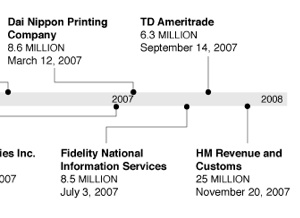Tomorrow, President Obama is expected to call for the creation of a new watchdog agency that would help protect consumers from abusive credit card, mortgage, banking practices. The banking industry is not happy about the idea, reports CNN. But hey, they’re just looking out for us: “It’s bad for consumers,” a banking industry lobbyist told the network. Oh, well, never mind then, and pass me some more delicious subprime!
protection

Buy The Right Sunscreen And Avoid Sunburn
Buying the right sunscreen could mean the difference between a pleasant day at the beach and a nightmare of splotchy pain. Consumer Reports conducted a poll to see how you people use sunscreen, and even dunked a bunch of volunteers in a tub for forty minutes to see how different sunscreens held up. Inside, the sunscreens that earned Consumer Reports’ praise, and a few tips for avoiding the dreaded summer sunburn.

GMail's Achilles Heel: Terrible Customer Service
Losing access to your GMail account is tantamount to banishment from the internet, but Google’s non-existent customer support makes it nearly impossible for rightful owners to regain control of their accounts. The New York Times asked Google why they couldn’t afford to offer phone-based customer support, a simple question Google needed three people to answer.

'Identity Theft-Proof' Wallet Blocks RFID, Goes In Front Pocket
If you’re concerned about your RFID-chipped credit cards being skimmed, you might want to consider shielding them. DIFRwear makes a wallet with the shielding already included, and now roguewallet in Maine has introduced its own RFID-shielded version, with a fin-shaped design so it fits better in your front pocket to thwart pickpockets. Unfortunately, it’s also $50, compared to $20 for the more conventional looking DIFRwear hip-pocket design. (Both are FIPS 201 compliant, if that means anything to you.)
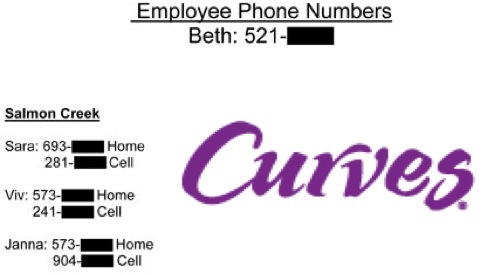
Curves Leaves Working Computer Full Of Personal Information In An Office Dumpster
UPDATE: Adam has been in contact with the owners and has posted an update on his site.
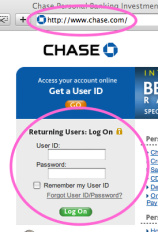
Chase Doesn't Encrypt Your Login Credentials?
We’re not IT experts or anything, but when Chase writes that “all your account information is protected by 128-bit encryption to maintain the privacy and confidentiality of your data,” shouldn’t that mean a little lock icon on the browser window, and an https address? Update: Not necessarily, according to our commenters, although the lack of an https login screen does pose other security risks.

Seller Gets Scammed On Ebay, PayPal Won't Help
Matt just got his first taste of Ebay, and it wasn’t good—as soon as he mailed off the Best Buy gift card to the buyer, the buyer reversed payment on Matt’s PayPal account and stopped communicating with him. We’re pretty sure he’s screwed on this one, but does anyone have any good advice for what he can do next?
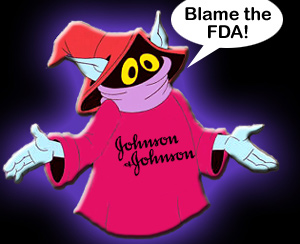
Pre-Emption Doctrine Would Make FDA Responsible For All Drug Problems, Shield Big Pharma From Lawsuits
Johnson & Johnson is waiting to hear whether or not a judge in Ohio will allow any lawsuits over its Ortho birth control patch to move forward, and the New York Times says lawyers on both sides think there’s a good chance he may find in the company’s favor based on the doctrine of pre-emption. The argument goes that it’s the FDA’s responsibility to monitor the safety and labeling of drugs that go to market, and therefore if something goes wrong, it’s the agency’s fault and not the pharmaceutical company’s.

Dog Fur Coats Sold By Dillards, Caché, ELUXURY, And DrJays
The Humane Society has just released the results from another round of tests on fur-trimmed products from national U.S. retailers, and in four cases they found that the advertised “raccoon” fur was actually “raccoon dog,” a canine indigenous to Asia. This is one case where the FTC is squarely to blame for creating the problem in the first place, because in 1951 they decided that trade trumps scientific classification and declared “that this animal should be referred to as ‘Asiatic raccoon’ in advertising and labeling.”

HBO Using Tivo's Macrovision DRM To Restrict "John Adams" Miniseries?
When Dean recorded HBO’s new Tom Hanks-produced miniseries “John Adams”—which is not a pay-per-view or on-demand program—he was surprised to see it was flagged by Tivo’s Macrovision software, which controls how many times you may watch a program and how long you can store it before it’s automatically deleted. Now the question is, was this a mistake on the part of HBO or Dean’s cable provider Comcast? Or—considering HBO’s infamous anti-consumer stance on time-shifted programming—is it the beginning of a sneaky “back-door” approach to locking down all their content, something Tivo’s own people said would probably not happen when they added Macrovision to their recorders in 2004?
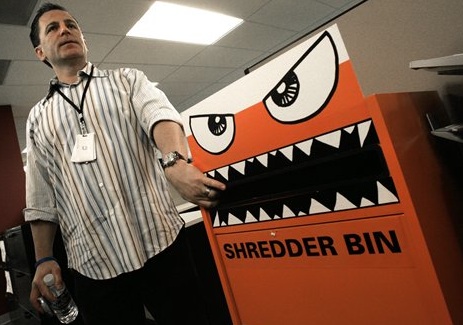
Go Buy A Shredder Right Now
A shredder is an indispensable tool for keeping your identity safe and secure. If you receive credit card offers or have old bank statements littering your files, then you can’t do without a cross-cutting shredder to slice and dice your personal information into an indecipherable medley of confetti. Frugal For Life points out a few of the many reasons we all should be devout shredders.

When Should You Buy A Warranty?
SmartMoney has added its opinion to the argument of what warrants extended coverage and what doesn’t. Here’s their list of when and why you would want to buy that extended warranty—adjust their advice accordingly based on your own tolerance for risk and your history with dropping and spilling things.

Minimize Your Risk Of Theft While Shopping
The Seattle PI has a report on car prowls at malls while victims are inside shopping, and some advice on how to minimize your risk. Never leave anything of value in your car, and don’t assume that by throwing a coat over it you’ll disguise it. Instead, put it in the trunk.

Blogger Who Wrote About A Business Wins Defamation Lawsuit
Considering the lifeblood of The Consumerist is publicizing stories of bad businesses and bad business practices—including drawing attention to personal stories on other peoples’ blogs—we were happy to read that blogger Philip Smith won the federal defamation and trademark dilution lawsuit brought against him by a company he wrote about on his personal blog. Although it doesn’t guarantee that other angry business owners or their legal teams won’t come after you for writing about your unpleasant experiences with them, it cheers us to know that, at least in this case, a federal judge felt that Smith should be protected from retaliation for telling his side of the story. “It’s not about the title, it’s about the content, said Judge Henry Hurlong, Jr.; a journalist turns out to be anyone who does journalism, and bloggers who do so have the same rights and privileges under federal law as the ‘real’ journalists.”

6 Online Shopping Scams To Watch Out For
1. Missing Auction Goods – Auction fraud represents over a third of Internet scam complaints every year. Your safest bet is to pay with plastic so you gain the protections of the Fair Credit Billing Act. When plastic’s not an option, setting up an account through PayPal or BillPay that connects to your credit card is the next best bet.

Dangerous Sealant Recalled, Replaced By Just-As-Dangerous Sealant
It’s been more than two years since the CPSC first became aware of problems with the spray-on sealant Stand ‘n Seal—it contained a chemical that can cause extreme respiratory problems in some customers, but was only partially recalled by the manufacturer and then replaced with another product with the exact same chemical—but the CPSC has yet to issue any fines to the company, writes the New York Times. It’s yet another example of how an underfunded, underpowered CPSC fails to protect the public from reckless companies who swap ingredients, lie, and hide important data in order to protect their bottom line.

5 Ways To Make Sure You're Actually Talking To Your Credit Card Company
When you consider the risk and high cost of identity theft, it pays to be skeptical whenever someone calls you and claims to be from your credit card company. How can you verify that they’re legit? Reader Cathy points us to bloggingawaydebt.com, which offers five simple things to do if you want to make sure you’re not being scammed.



